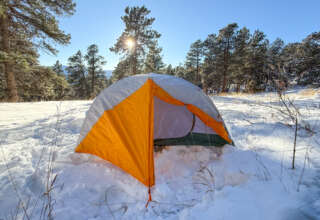
Have you ever wondered when they started naming winter storms? You might wonder why this is important but there is logic in following winter storms each year just as there is in following tropical cyclones in the summer. The further you get down the alphabet, the likelier you are looking at a record setting winter.
So, How Did Winter Storms Get Their Names?
To answer your question, The Weather Channel officially began naming winter storms in the 2012-13 winter, starting with Athena. This year, we are already at Hunter, the 8th large storm of the season and we haven’t really gotten through the historically worst part of the season. This year, it is forecast that record snowfall that hit the south and northeastern states and colder than average temperatures will set the already high cost of heating soaring.
Hunter Spreading Cold, Ice and a Snowy Mess from the Deep South to New England
If you live on the Eastern Seaboard and aren’t following the path of Hunter, you could be in for a rude awakening. Whenever large spread areas are covered in ice, there is always a possibility of power outages. Not only have you been paying more for the cost of heating your home this winter, but you are also in danger of losing heat potentially for days. The best solution is a wood-burning stove, the best splitting axe you can find and a cord of wood as backup.
What Has Driven the Cost of Heat So High?
If you are on the projected path of Hunter, you may be in for a rude awakening. Stockpiles of heating oil are at an all-time low after recent hurricanes bombarded refineries. The northeastern states use the most heating oil so they will be hardest hit. With costs rising more than 17% over last year already and record cold temperatures about to strike, those homes will see enormous heating bills this winter. This figure was released in an article on Bloomberg that reported a higher than usual demand for distillates as far away as Europe. Refiners along the Gulf coast are falling behind and so that leaves us with short supply and high prices.
Alternatives to Oil
If this year has anything to teach homeowners and businesses in hard-hit areas, it would be to spend the summer seeking alternatives to oil. Safely installed wood burning stoves can keep the home warm at a lower cost even than electric heat. These are especially useful in rural areas where forests are plentiful and the cost of wood cheaper. Those with land may even have trees which can be downed to use as fuel but even so, wood burning stoves are a great alternative to fossil fuels which are in short supply and getting shorter with each passing day.
The only hope homeowners have at this late date is that the winter season is short and not as cold as forecast. Take time to seek alternative heating solutions before next year and there is no reason to fear energy bills rising beyond what you can pay. Even if summer storms impact refineries, alternative heating solutions can keep your costs under control.














